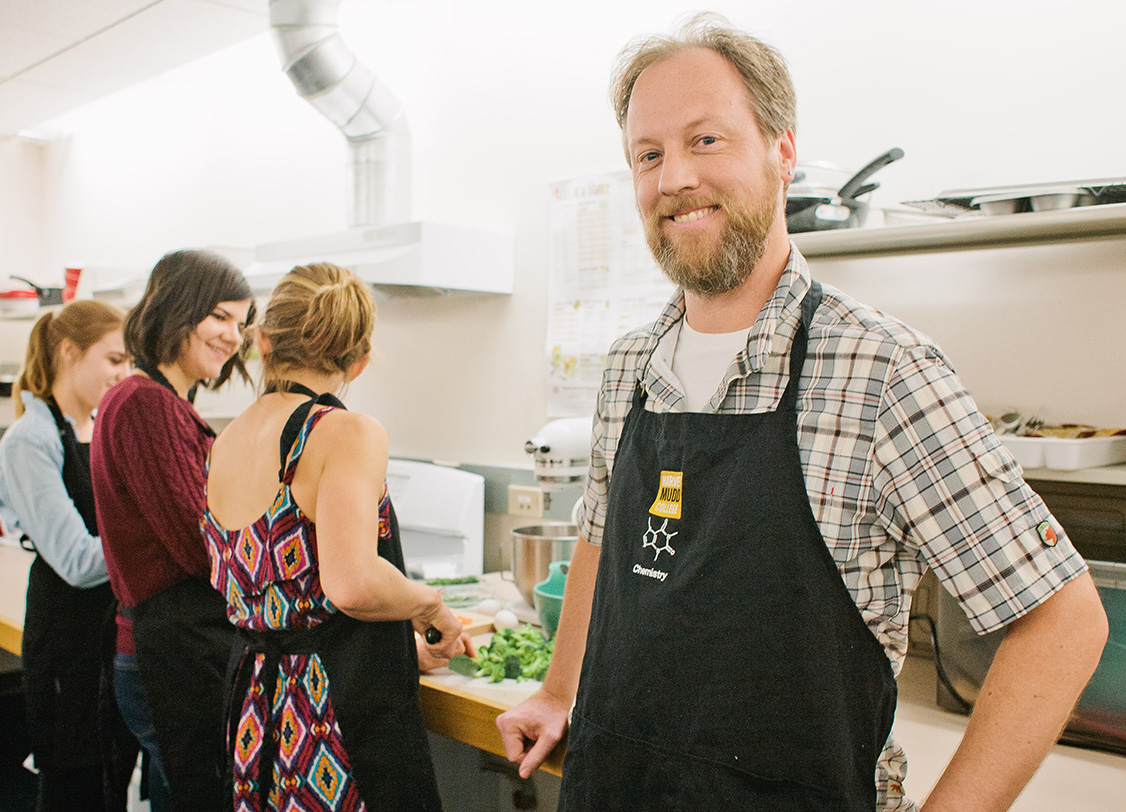NSF Grant Supports Inorganic Chemistry Education
July 26, 2017
Inorganic chemistry is a diverse field with research areas ranging from understanding biological systems to making new materials and is critical to solving many STEM-related societal issues. So, improving student learning and interest in inorganic chemistry is a national imperative. Encouraging faculty to adopt teaching strategies that engage and inspire students to continue in STEM is the focus of a five-year, $1.11 million National Science Foundation grant to the Interactive Online Network of Inorganic Chemists (IONiC), a group co-founded by Harvey Mudd College chemistry professor Adam Johnson.
Titled “Collaborative research: Improving inorganic chemistry education through a community-developed student-centered curriculum,” the project will improve teaching and learning in inorganic chemistry by leveraging an established community of practice to develop a modular framework for teaching inorganic chemistry grounded in active learning practices. New curricular materials based on the latest advances in inorganic chemistry research and accessible at the level of the undergraduate classroom will be developed and shared via the curricular repository VIPEr (the Virtual Inorganic Pedagogical Electronic Resource, www.ionicviper.org), IONiC’s website and social networking hub.
“Our work will bolster the population of chemists with the tools and critical thinking skills, developed through inorganic chemistry coursework, that are essential to tackle emerging issues,” says Johnson, one of the “pit-vipers” (leadership group) that develop and disseminate best practices for teaching inorganic chemistry. “The project will also contribute to our understanding of how to encourage faculty to improve their teaching effectiveness.”
The Interactive Online Network of Inorganic Chemists (IONiC) was founded as a community dedicated to advancing inorganic chemistry education. It is organized and directed by a leadership council comprised of 11 faculty at primarily undergraduate institutions across the United States. Two of the principal activities of IONiC are a series of annual Back to Grad School faculty development workshops and VIPEr.
The annual workshops bring together faculty members, graduate students and facilitators to focus on one subdiscipline of inorganic chemistry. Faculty are introduced to recent high-impact research and are then develop teaching materials on the topic. A main focus is the incorporation of peer-reviewed primary literature into the undergraduate curriculum. These teaching materials are hosted on the VIPEr website.
VIPEr is a digital library and virtual community for sharing teaching materials, advice and evidence of student learning with more than 1,000 registered faculty users from six continents. Materials on VIPEr are available as discrete “learning objects” (LOs), small pieces of curricular material adaptable to different classroom situations. LO types include classroom and laboratory activities, literature selections suitable for in-class discussions, short presentations on special topics, and problem set and exam questions. Many LOs emphasize active learning, student inquiry, and require higher-order thinking, including analysis, synthesis and evaluation. Creative Commons licensing allows LO authors to maintain copyright, while permitting other users to adapt LOs to their own classrooms. VIPEr uses a “dynamic peer review” model where materials evolve after online posting. After initial review and publication, users adopt and adapt the LOs for their own courses, posting comments about their experience.
